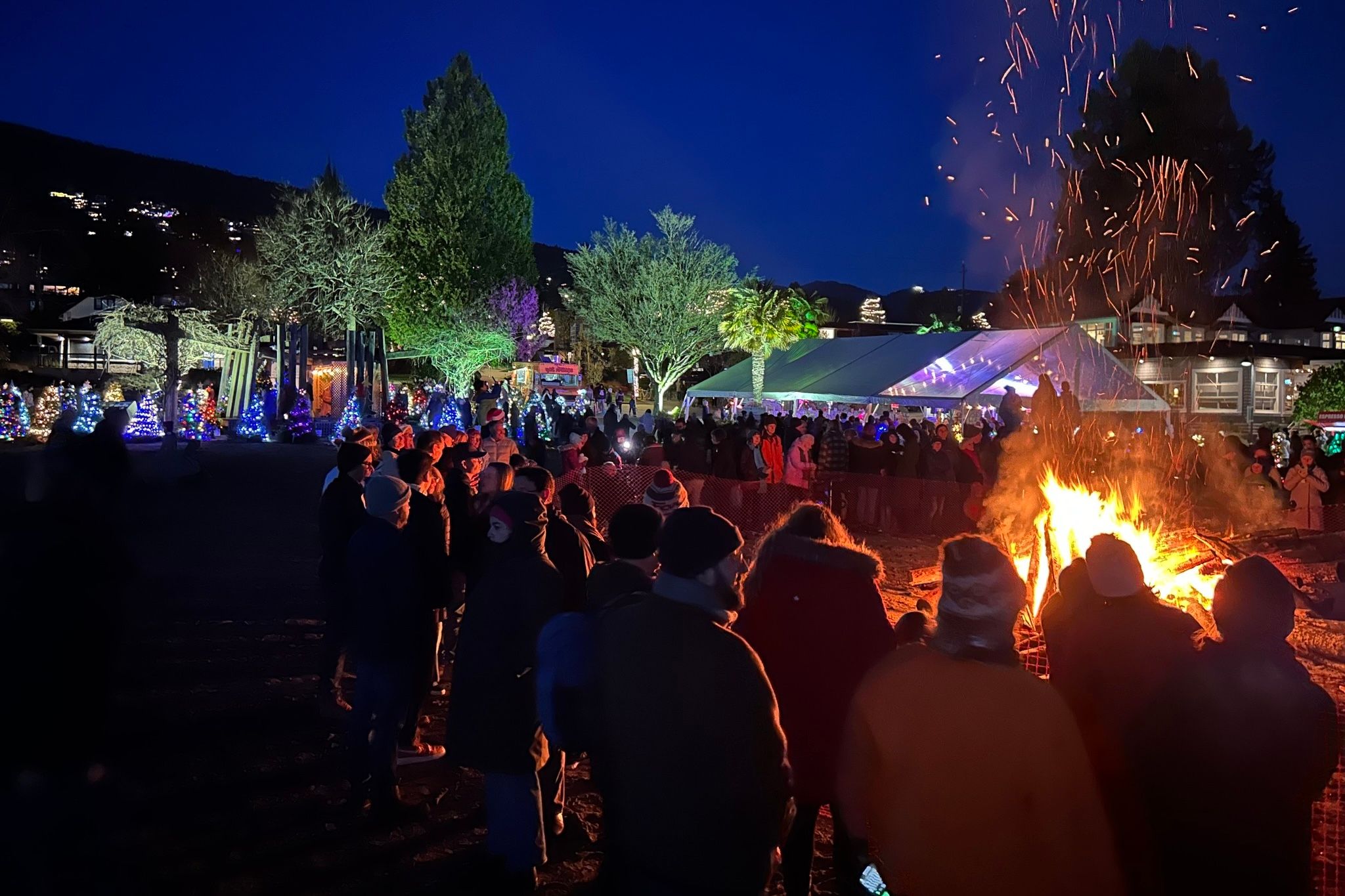In the opening minutes of Icarus Theatre’s DNA, by English playwright Dennis Kelly, a flood of bodies dances among fallen leaves, expressive graffiti, and metal scraps. It’s a party — but something’s off. The teenagers’ movements crackle with tension; there’s fear where there should be freedom. It’s a natural start to a grungy, passionate production that stars young people, but finds them terrifying.
Like Jordan Tannahill’s Concord Floral — which fellow indie company Pucker’s staged a month ago in the same venue, The Theatre Centre’s BMO Incubator — the narrative of DNA centres 10 teenagers. Immediately following the opening movement score, we learn that an adolescent named Adam has disappeared after falling into a deathly pit beneath a sidewalk grate. Only his friends know about the tragedy, and because some of them were at the scene of the crime, they worry that if the news circulates, they’ll go to jail.
Everyone reacts to this prospect with wide eyes except the brooding Ray (Chantal Grace, in a role the production has renamed and compellingly gender-bent), who emerges as their confident leader. She climbs atop a centre-stage wooden platform and starts rattling off complex instructions of how to fool the police — and their DNA-detecting tools — into thinking Adam was abducted and killed. The rest of the 70-minute play tracks the teens’ execution of this convoluted, ethically questionable plan, as well as its haunting fallout.
Kelly’s script whips from scene to scene, and director Erik Richards renders the required transitions in stylishly atmospheric fashion. In one instance, Ray ends a conversation by asking “Any questions?”; she then carries her laid-back swagger into the following transition, tossing a pop can into a bucket right as music begins and the lights dim. (The only credited designer is Emily Anne Corcoran, responsible for set and props.)
The production unfolds in an alley seating arrangement, with a long, narrow playing space splitting the audience in two. Because autumn leaves litter the floor, and the entire plot takes place outside, this setup brought to mind Toronto’s ravine system — a notion the production partially affirms during its final seconds, when it switches out a mention of Brighton Beach, in England, for Lake Ontario’s Cherry Beach. While there are a couple of lines that imply the play is meant to have a more specific geography than somewhere in a ravine, Richards’ broader approach is suggestive, and not overly confusing.
In Kelly’s highly naturalistic dialogue, the characters think in real time, often navigating touchy subjects by speaking in spirals of half-formed ideas. This clipped, rugged syntax gets impressively close to approximating the anxious speech patterns of teenagers, but on a technical level it proves a challenge for this group of emerging performers. In order to justify a character cutting themselves off several times in a single line, an actor must appear to be cycling through the same number of thoughts. But here, in casual exchanges — particularly those with only two or three characters — the actors’ mental process often seems to lag behind their words, creating a stilted effect that feels unintentional.
During scenes featuring most of the cast, though, the production ignites. The text whistles around the stage as different characters speak up, the air vibrating with energy. While Richards’ tendency toward snappy, thriller-esque pacing doesn’t suit all of DNA’s more intimate moments, it adds further electricity to these ensemble sequences, bringing the play’s central reflections on groupthink and collective grief into clear view.
For the first half-hour or so, Icarus’ DNA mostly just feels damn cool, the pop-punk aesthetic and slick staging creating a vibe that’s simple but very watchable, easy to get lost in. But this palatability grows more complicated as Kelly twists the plot in knots and Richards modulates the atmosphere to a darker, yet equally potent, register. Although the characters act in revolting ways, I more than once found myself wanting to defend them. I guess I was starting to feel like part of the gang.
DNA runs at The Theatre Centre until November 15. More information is available here.
Intermission reviews are independent and unrelated to Intermission’s partnered content. Learn more about Intermission’s partnership model here.














